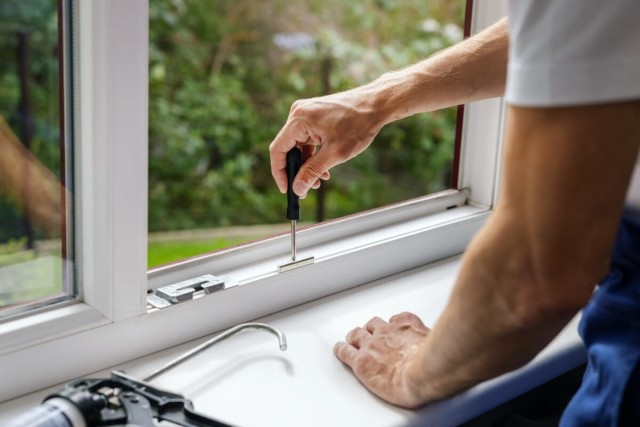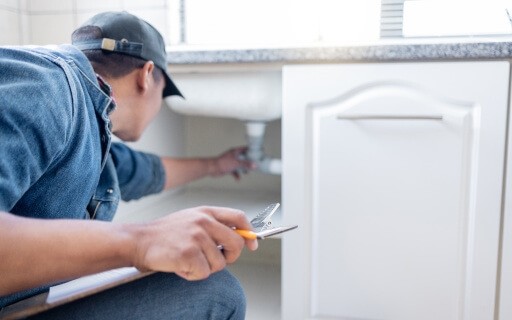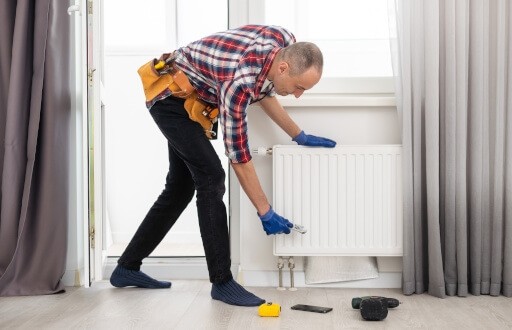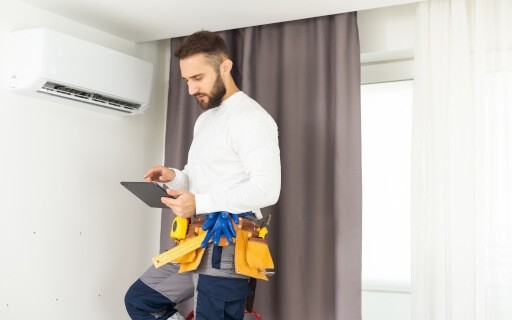Clogged pipes are the most common plumbing issue you’ll encounter as a landlord. If your plumbing woes are the result of tenant behavior, don’t worry. There are plenty of preventative measures you and your renters can take to keep the problem from occurring. But if you’ve got a consistent clog that’s the result of poorly designed or deteriorating plumbing, you might be on the hook. After all, it’s the landlord’s duty to provide a habitable unit, and this includes plumbing that functions properly. Either way, there are some relatively simple steps to take to stop a recurring problem and prevent another clogged pipe.

1. Use a Plumbing Lease Clause
As always, your lease is your first line of defense. A clear and concise lease clause can prevent any fault on your part by informing your tenants what’s okay to put down the drain. It will also limit your liability to faulty pipes, tree roots, and conditions outside the tenant’s control. Here are some things your clause should include:
- Avoid putting grease, stringy vegetables, starchy foods, or hard objects such as bones in the garbage disposal.
- Clean the laundry lint filters regularly. This includes the filters in the washer and the dryer.
- Remove hair from shower and sink drains regularly.
- Monitor what you flush down the toilet. Do not flush feminine hygiene products, diapers, or non-degradable objects such as cotton swabs or non-paper products.
2. Provide Tenants with the Proper Plumbing Tools
Another way to ensure that you and your tenants are on the same page when it comes to preventing clogged pipes is to provide them with the proper tools. Putting the proper plungers in the bathroom and under the kitchen sink can help clear common pipe problems.
Dome vs. bell plunger
Make sure your tenants have the right plungers at the ready. A dome plunger is the best choice for clogged sinks. This resembles the “classic” plunger shape with an inverted rubber cup. A bell plunger has an extended flap on the bottom of the cup designed to fit better in a toilet, so make sure you have a bell plunger in the bathroom.
3. Use a Drain Snake
For more serious clogs, you or your tenants might have to ditch the plunger and use a drain snake, also called a drain auger. This tool helps to break up the clog, unlike a plunger that simply pushes the clog through the pipe.
You can find a variety of drain snakes and augers at your local hardware store.
4. Avoid Using Harsh Drain Cleaners
The go-to solution for most people dealing with clogged pipes is to use a liquid drain cleaner. Used properly, this can be a good solution for minor clogs, but with consistent use (and in older homes) these types of products can actually break down your plumbing. They’re okay for infrequent use or on drains that are hard to plunge or snake, but they should otherwise be avoided. You can also use baking soda and vinegar as a more pipe-friendly alternative.
5. Call a Professional for Help
It’s great to have tenants who can handle minor inconveniences on their own, but make sure they know when to call and ask for professional help. If a clog seems like it can’t be cleared or the problem happens frequently, you may need to bring in the pros. A dedicated plumber will have a greater arsenal of tools to help clear a blocked pipe.
It’s also wise to leave any serious job to the pros, such as taking out old pipes or installing new ones.
6. Treat Pipes Regularly to Prevent Clogs
While the continued use of harsh drain cleaner isn’t advisable, enzyme-based drain buildup removers are a different story. These products are more for maintaining a healthy drain system, not for clearing clogs. Treating your pipes monthly with an enzyme-based drain cleaner will help break down grease and other buildup that prevents pipes from flowing freely. You should also consider adding a monthly drain treatment into your lease clause on plumbing maintenance.
7. Upgrade Your Vent Pipes
Another common home modification is to upgrade your vent pipe, the piece of your plumbing system that maintains proper air pressure so everything flows freely. Make sure the vent pipe isn’t clogged and that it has a proper vent cap to prevent debris from entering the system.
Upgrades to your vent system can be more costly than other solutions on this list, so make sure you have the vent pipe and your plumbing system assessed by a plumber before you make modifications that might not pay off.
8. Handle a Septic System with Care
Septic systems are a whole different story when it comes to clogged pipes and other plumbing issues. If your septic tank isn’t treating wastewater appropriately, that water will works its way back into your pipes and cause blockages. Make sure your septic system is in proper working order with an occasional enzyme treatment and that your tenants know how to treat the septic system by using a clause in the lease.
9. Consider Purchasing a Home Warranty
If you want to avoid the big bills that serious plumbing issues can cause, consider getting a home warranty to protect yourself. Instead of paying a plumbing bill up front, your home warranty company will send out a licensed professional to fix the problem, and you only pay the deductible (in most cases). This is also a great choice when dealing with older homes when maintenance becomes more frequent.
10. Clarify What Plumbing Tenants Can Do on Their Own
Use your lease to inform your tenants on what plumbing duties fall to them and when they should call you. The odd clogged pipes and monthly maintenance with an enzyme-based cleaner should be left to your tenants, but if the problem persists have them call you to prevent any serious damage to your plumbing. In the case of a serious issue, make sure your tenant has an easy way to submit requests for help. With our online platform, renters can submit maintenance requests online. You will get notified when a request is submitted, and you can easily update tenants as the repair progresses.
Almost no homeowner is a stranger to a clogged pipe. In most cases, the problem should be easily resolved. But if the problem persists, there are plenty of ways to handle the situation. Use your lease to inform your tenants on what they can and can’t put down the drain, provide them with the proper tools for a minor clog, and make sure they know when to call in the pros.











